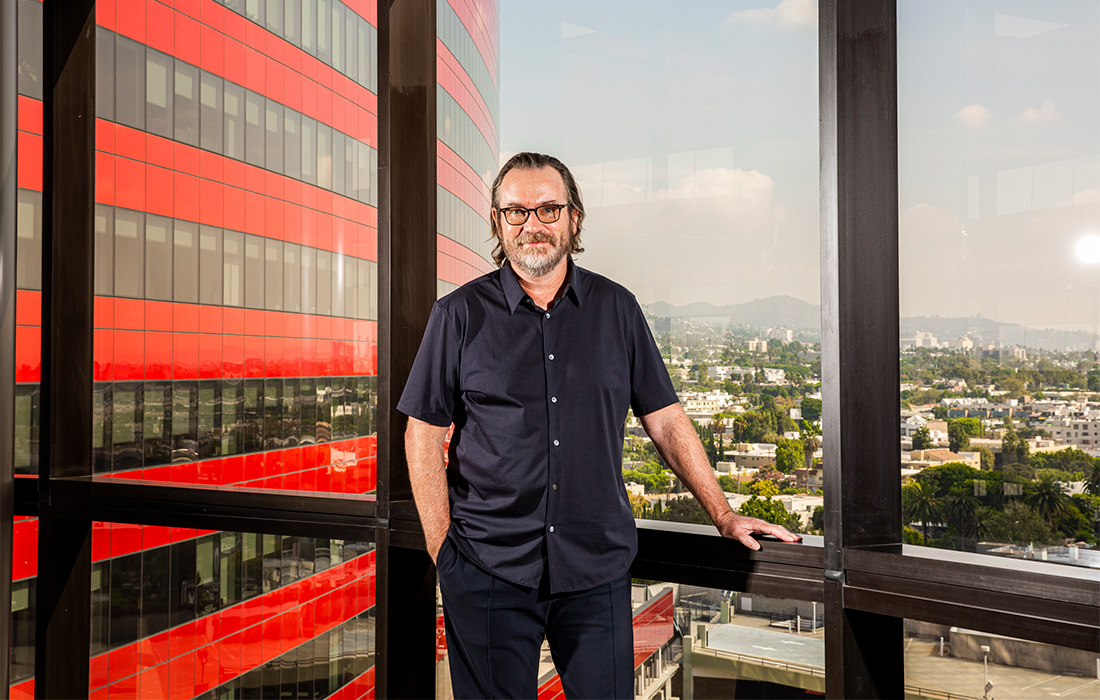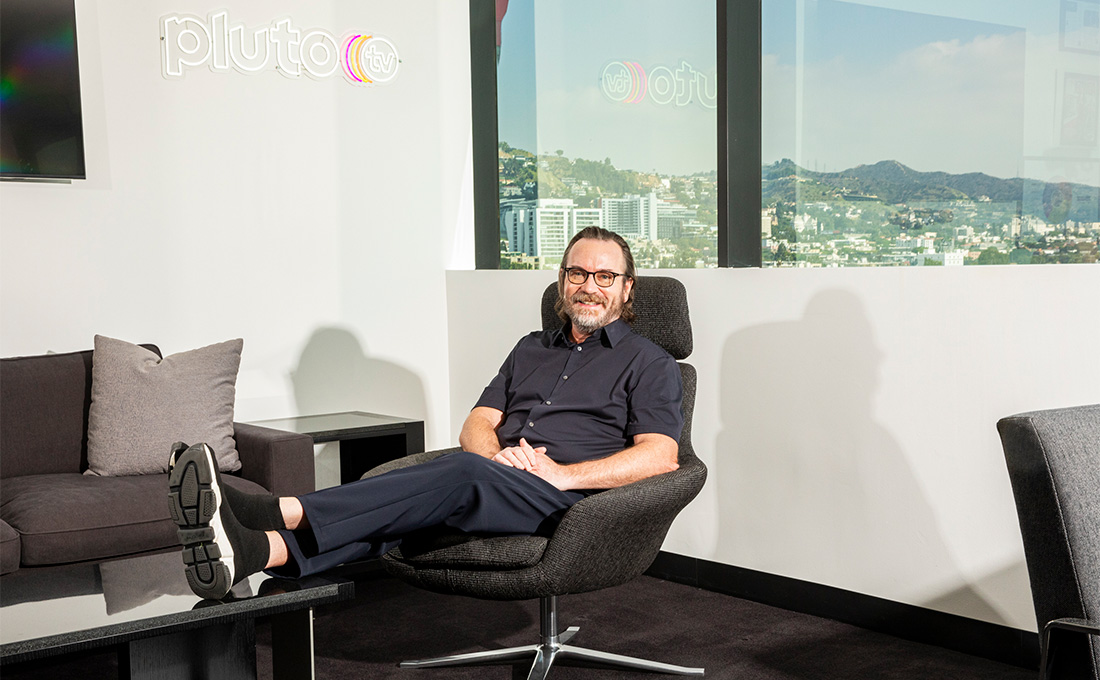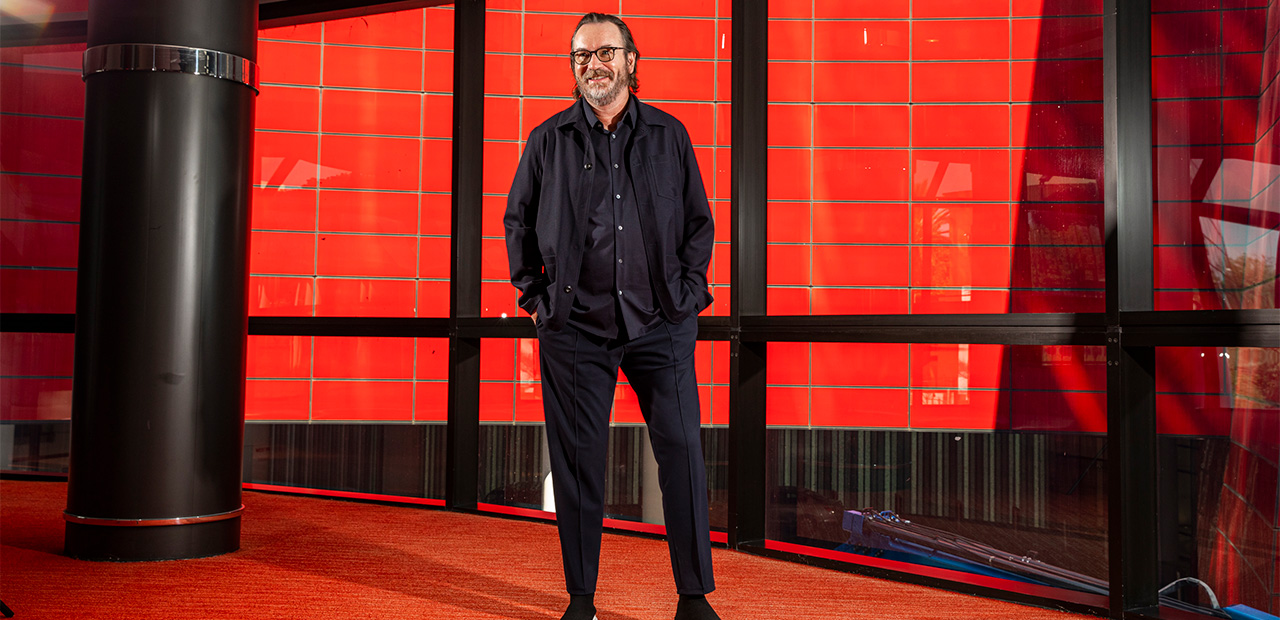Mar 28, 2024 In The Office With
Tom Ryan on What's Next in Streaming
The worst advice Tom Ryan ever received was not to launch Pluto TV. His career would have been much different if he listened.
President and CEO of Paramount Streaming, Tom Ryan, co-founded Pluto TV in 2013, pioneering free, ad-supported streaming television, now better known as FAST. By 2019, Paramount saw FAST’s incredible growth potential and purchased it. Ryan stayed on to lead Pluto TV through the transition and, in 2020, was tapped to oversee all of Paramount’s streaming platforms, including the launch of Paramount+.
He set out on a mission to entertain the planet while bringing Paramount Streaming to profitability. “We’re ambitious in our mission, but that’s because we’re confident in our unique offering,” Ryan said. “As the only scaled media player with market-leading paid and free services, we have a clear advantage over our competitors that we believe will serve us in the long run.”
Since Ryan has taken the reins, Paramount Streaming has established itself as an industry trailblazer. Paramount+ is one of the fastest-growing streaming services with nearly 68M subscribers, and Pluto TV—which turns 10 this April—is a global leader in the FAST industry. From Ryan’s perspective, it’s only up from here. The team is looking forward to harnessing the combined power of its free and pay ecosystem to transform streaming into an engine of growth for Paramount.
Ryan spoke to the Paramount Newsroom about the power of partnerships, why Paramount has quickly become a serious contender in streaming, and how he handles an industry that’s constantly changing.


Nicole Bitette: What does Pluto TV reaching its 10th-anniversary milestone mean to you?
Tom Ryan: It’s remarkable to think when we launched Pluto TV on April Fool’s Day in 2014 everyone thought we were just that: fools. Pluto TV was linear in the age of on-demand, free in the age of paid subscription, and ad-supported in an age when everyone thought ads would have no place in the future of streaming. No one thought it would last. Flash forward and Pluto TV has become a billion-dollar business just seven years after launch. FAST is seen as a cornerstone of streaming, not to mention a rapidly growing global market expected to see a revenue of $12B by 2027. I’m immensely proud of all that we have accomplished in the last decade, but the best is yet to come. We are still a nascent category with so much opportunity for growth and innovation. All I can say is stay tuned.
NB: How did you parlay your experience starting Pluto TV to your current role overseeing all of our streaming services?
TR: I’ve been an entrepreneur for most of my career, and I believe that tech-enabled companies need to not only move quickly but also build a culture that encourages experimentation. I believe in going after big opportunities, hiring and empowering a diverse, talented team to move fast, test new ideas, and remain nimble. That’s what’s needed to innovate.
I like to create an entrepreneurial environment for my teams where they can continue to grow and drive success, individually and collectively. It's true that we're now part of a much larger organization and that comes with lots of great assets, resources, and advantages that you don't have at a startup. But that entrepreneurial mindset is so powerful, mainly because you have everyone focused on an ambitious mission and everyone's aligned. We really have the best of both worlds with Paramount Streaming as part of Paramount Global today.


NB: How do you deal with the chatter and speculation around our streaming platforms and how crowded the market is right now?
TR: Our mission—and the consumers we’re serving—are always front and center. That focus guides us and pushes us to deliver smart, valued experiences for consumers at every level. If you listen to the armchair critics, you limit your creativity and stifle the courage to experiment and ultimately accomplish something new, different and great. Feedback can certainly be helpful, but it’s about being creative through criticism and concentrating on delivering audiences the best entertainment experience possible, which is something I think we continue to excel at both on Pluto TV and Paramount+.
NB: What do you see for the future of bundling?
TR: We've been believers for a long time in the power of bundling for many of the same reasons that we believe that a whole household service makes sense. It gives a single destination for a household's streaming needs and, by bundling, you can achieve that through partners much in the same way we've integrated Paramount+ and SHOWTIME. Bundling streaming services will play a significant role as we continue our path to profitability. They allow us to strengthen our whole household offering and, additionally, on top of providing more content and reasons to stay with the bundle, they often offer customers a discount. So customers not only get a better deal, but they have more reasons to stay. There's a stickiness created by bundles, so we are very bullish on their future.
Bundling has now become a major trend in streaming. We've been one of the leaders, if not the market leader, for bundling Paramount+. In 2022, we partnered with Walmart+ to offer the Paramount+ essential tier to their members. And, last year, we teamed up with Delta to become their exclusive in-flight entertainment partner. We've also bundled Paramount+ with a variety of pay TV providers in other countries like Sky, for example, in Europe. These were very competitive deals and helped to establish us as a real partner for leaders across industries.
NB: You mentioned our partnerships with Walmart+ and Delta. Why is it important we invest in partnerships like these?
TR: Paramount has always been a partner-driven company, and we have embedded that thinking into Paramount Streaming. We've partnered with many distributors worldwide to drive growth for Paramount+ and Pluto TV. The same is true for Pluto TV. Pluto TV was built on a model of shared success between content partners and distributors. Pluto TV wouldn't be where it is today without its strong content distribution and advertising partners. In fact, we pioneered the integrated distribution model, helping major device manufacturers get into the space by launching their own FAST services in partnership with Pluto TV.
At Paramount Streaming, we believe collaboration is our superpower. And that's the approach we take whether we’re teaming up with third parties or other divisions across Paramount Global.
NB: What is the advantage of having both Pluto TV and Paramount+ under one umbrella?
TR: As the only scaled media player with market-leading paid and free, ad-supported streaming, we can reach the largest group of consumers possible while increasing our share of the global market. They are both whole household offerings with a vast array of content, but our streaming ecosystem is a unique business model that offers consumers the full menu of options at different price points. They are complementary services that feed off one another by providing different user experiences. Pluto TV leads in FAST while Paramount+ is a leader in paid. Their content offerings are also complementary, making our footprint in streaming that much bigger. Our unique hybrid model therefore allows us scale that puts us at a competitive advantage.
NB: Tell me a little bit about your career. What was your first professional role, and how did it lead to where you are today?
TR: My first professional role was not the one I expected. I thought that when I graduated college I’d end up in a typical investment banking training program on Wall Street. But the opportunity to work at a small trading company in Europe came up, and I had traveled outside the U.S. for the first time about a year earlier, where I had done a study program in Taiwan and spent time in China. My eyes were open to see the rest of the world, and I thought what a great opportunity to go and work outside of the U.S. I traded metals of all things.
In four years, I traveled to over 60 countries. It was a small, entrepreneurial team building a new business, and I was responsible for helping to develop its business in new markets worldwide. I’d get on a plane and meet people, introduce them to the company, and identify opportunities. It was a great experience. That combination of being exposed to entrepreneurship at a young age and traveling all over the world shaped my career. I became an entrepreneur and brought a global lens to every business I built.


NB: What was your first entrepreneurial venture?
TR: Before business school, I lived in Europe, fell in love with electronic music, and became fascinated with the early commercial internet. I met a couple of students who shared my interests and passion for entrepreneurship. We were in a new ventures class and agreed that if we won the contest at the end of the semester, we would not take that job at McKinsey or Goldman Sachs or whatever. We'd become entrepreneurs. I vividly remember that moment when we won the entrepreneurship contest with an idea for distributing music on the internet, initially custom CDs, but then digital downloads. We looked at each other with a combination of excitement and fear that we weren't going to have a salary and that we were going to be the only entrepreneurs. Everyone else went into a nice paying, cushy job, and we wound up moving to New York to start one of the first digital music companies.
That was my transition. A decision—partly born out of our interest in music, the internet and entrepreneurship and partly as a lark because we shook on it—that changed the trajectory of my career.
NB: What’s the most challenging part of your job, and how do you approach it?
TR: Building any new company is hard. Launching any new product, even in an established company, is hard. You get told “no” constantly, so you need to develop a thick skin and have the courage of your conviction. To build Pluto TV from zero when it was a very contrarian idea was a big challenge. But Paramount+ has been a challenge, too—we have been routinely underestimated since we launched. It can be challenging to be the underdog but, from many of those underdog positions, the greatest companies arise. I'm proud of the work that our team has done across both Paramount+ and Pluto TV in that regard.
NB: What are you looking forward to? What’s your biggest goal?
TR: This year, it’s all about accelerating our path to profitability. Over the last three years, we have stood strong as one of the fastest-growing services and cemented our position as a top five streamer. We’re now capitalizing on that incredible momentum and focused on translating that growth into sustained profitability. Streaming is the future—and it’s a top priority for Paramount Global. We have put together a strategic roadmap and will reach domestic profitability in 2025.
NB: What is your team’s biggest accomplishment so far?
TR: One key accomplishment is the progress we’ve made on that path to profitability. We have continued to defy the odds and exceed expectations. Case in point: Pluto TV was the first service to generate over 1 billion in revenue. Furthermore, Paramount Streaming hit its peak investment year in 2022, a year ahead of schedule. It was a significant milestone for Streaming and the company at large—and it’s evidence that our strategy is not only working but having a real impact.
We also expanded Paramount+ and Pluto TV into a number of countries. We're now in all top 10 streaming markets for Paramount+, and we are close to hitting 68M subscribers. And Pluto TV breaks records each quarter in terms of the amount of viewership. It’s been encouraging to see such great growth even in times of significant challenges in the media and entertainment industry overall.
Q: What’s the worst advice you’ve received and why?
TR: Don't do Pluto TV. Input is important and I do very much value advice, but it's only one opinion when making big, complicated career and life decisions.
Q: What’s something about you that your employees would be surprised to learn about you?
TR:I'm looking for a new sport or activity I can be good at. I tried to pick up mountain biking last summer and I fell off a cliff and broke four ribs. I've been playing a good amount of pickleball, but my 10-year-old son beats me regularly. I may not be cut out for sports and should think about returning to DJing.
Q: If you weren’t in this career/field, what would you do for a living and why?
TR: I've been in a lot of industries where I've tried to evolve them somehow using the internet as an entrepreneur. If I wasn't doing what I am today, I'd probably be looking at a completely new industry and how to shape it and evolve it using technology in some way.
Q: Is there anything you’re currently obsessed with?
TR: I like to get my car out and go for drives in the canyons here in California. I find it a nice way to relax and think. It's also a good way to get off my phone and take a few hours to separate myself from tech and distraction. My other focus is my kids who are 10, nine, and nine. At this point it’s becoming clear how quickly time is passing. I'm very grateful they're still young, but they're growing up so fast. Every moment is precious and I try to spend as much time as I can with them.